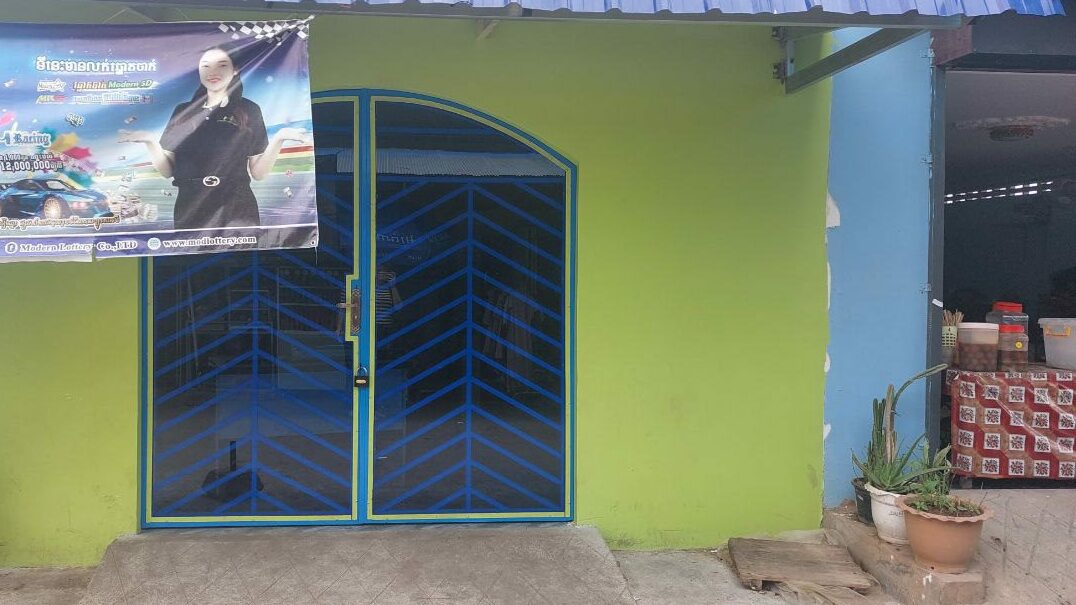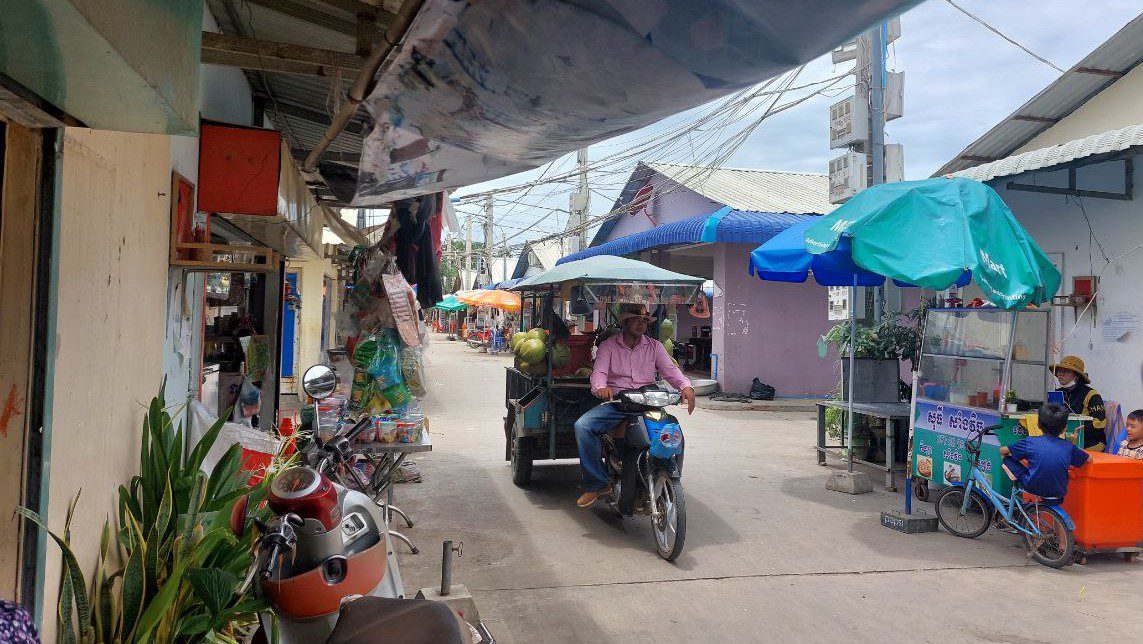Up till May this year, police would come into Andoung IV village for only one reason: to make a drug arrest, said San Va, a 45-year-old resident and construction worker.
It happened about seven times, he recalled: A small group of officers would arrive in the village in Prek Pnov district’s Kok Roka commune, point at a young man, and take him into the station and probably ask him to pay a fine.
“People are scared when they come home from work and see police,” he said. “They will have to pay.”
But in May, residents swarmed a police car when three plainclothes officers tried to arrest a young man the community believed to be innocent.
“Before we didn’t protest, but for that last case we did,” said Va’s wife, Sao Phea, 37.
The police’s regular arrests have since stopped, she said.
Andoung IV is not the only community that has put up resistance to police raids in recent months, and this has prompted an official response to try to both clean up officers’ operations and end unruliness among residents.
For more than five years, police have pursued a drugs crackdown that has arrested tens of thousands of people a year — sparking criticism that it is targeting and abusing the rights of users. Despite the mounting arrests, the country is said to be increasingly targeted by international organized crime for drug production, with record seizures of precursors over the past year.
In early August, Phnom Penh Municipal Police announced it would create nine local-level working groups across the capital to review drug arrests, according to a statement signed by city police chief Sar Thet on August 5.
Officers must wear uniforms and carry identification, clearly document their operations, and be more careful in their use of weapons, the statement says.
“[Authorities] must avoid, to the highest degree possible, the use of weapons as a solution to a problem, but in a situation when defensive measures are required against threats, they must be used professionally and in a manner mindful of people nearby.”
Based on the accounts of Andoung IV residents, the officers who arrested the young man in their village in May would have violated these rules: The officers arrived in plainclothes, and one neighbor told VOD that an officer had fired a gunshot into the sky.
‘Spirit Has Been Crushed’
Andoung IV faced repeated police incursions, but this was not the only source of discontent: Most village residents had arrived there after being evicted from elsewhere in the city by notorious development projects.
Some are from Boeng Kak, a central Phnom Penh lake that was filled in by a company owned by Senator Lao Meng Khin, leading to violent evictions; others are from Borei Keila, another infamous site of evictions that saw the use of tear gas and live bullets in 2012, injuring at least 12; and some from Koh Pich, the island now home to waterfront eateries, apartments and the Canadian International School after armed police and workers with axes forcibly evicted residents to make way for Canadia Bank tycoon Pung Khiev Se’s Overseas Cambodian Investment Corporation.
Va, the 45-year-old construction worker, said families have a hard time earning money in the small community, but the bigger fear is they will be evicted again. Va said he’s seen borey, or gated-housing projects, rising around the village as land prices increase, and his family doesn’t have proper land titles.
To him, drugs were not a concern in the village, as only a few people seemed to be using them.
So in May, when a police car parked in front of the house of a family of four — two parents and twin brothers — residents were wary.
Va’s wife Phea saw the younger twin brother chopping and preparing vegetables inside the house when three plainclothes officers took him and put him into their vehicle. The older brother ran off to alert the community leader who oversees the rows of homes, she said, recalling hearing someone fire a shot into the sky.
But when the officers tried to drive away, a group of residents surrounded the car.

Phea said the community had been shocked by the authorities’ sudden action, and they did not believe the arrested 18-year-old had done drugs. They had also seen his parents panic, spurring them to action, she said.
“After work, he would come over and clean [the street of litter], or come play with the kids. He didn’t drink alcohol,” she said. “He was clean. If they arrested bad people, maybe the village wouldn’t have protested.”
She heard later that he had been beaten by police, and officers pointed a gun at him. “He looked completely lost,” she recalled upon seeing him return.
Por Noeun, a 31-year-old neighbor who lives in the same row of homes, agreed that the 18-year-old man was innocent, saying she didn’t believe her teenage neighbor did drugs, and that officers found no evidence of drugs after searching his home.
Now, the house where the 18-year-old’s family of four used to live is painted bright green and abandoned — the family sold their house about one month after the arrest happened and moved away.
Deputy community representative Pong Vanny said authorities had not pursued charges against the people who blocked their vehicle, possibly because “they knew they had to accept it.” The village had supported the 18-year-old, but for the family it was not enough.
“Their child’s spirit has been crushed by the threat and intimidation to answer [police questioning] like this so that they can no longer live here and sell their home,” Vanny said.
‘No Such Case’
Though police soon released the 18-year-old from Andoung IV, Kok Roka commune chief Son Sin this week defended the arrest, saying he believed that the man was involved with drugs.
“He confessed to everything. … According to the [police] report there were no drugs on him, but according to the information that police got from another drug user, he pointed out that kid so police arrested [him].”
Sin continued that he thought it was “unfortunate” that the family became scared enough to leave the village, but added that the arrest “was not a misunderstanding.”
Koul Yi, a deputy municipal police chief, has been assigned to lead the local-level working groups to review drug arrests and residents’ resistance to them.
Yi said on Monday that the situation was now under control across the city, with no new incidents since the August statement.
“There is no such case, it has been quiet,” said Yi. “When there is, we will crack down but there has not been,” he said before hanging up.
But the National Police’s anti-drug department put out a statement on August 15 that Russei Keo district’s Toul Sangke I commune residents had resisted the arrest of another 18-year-old man then formed a mob conspiring to kill law enforcement officers.
Ten days later, Phnom Penh police further issued a statement defending the arrest. Authorities were following a tip about a large-scale drug deal of at least 1 kg of drugs, and later received a second tip that a man was seen transporting drugs using a black Honda 125 cc motorbike without license plates.
After following two different motorbikes, officers “invited” an 18-year-old man to the anti-drug department for questioning, the Phnom Penh statement says.
The anti-drug department then claimed that a mob of people had attacked three of its officers, one of whom was taken to an emergency room with injuries. The department said residents had been misled by drug traffickers into believing police beat and tortured the 18-year-old.
“The purpose is to assassinate law enforcement officials, and if the intervening forces did not come to help the law enforcement officers on time, they might have lost their lives,” it said.












